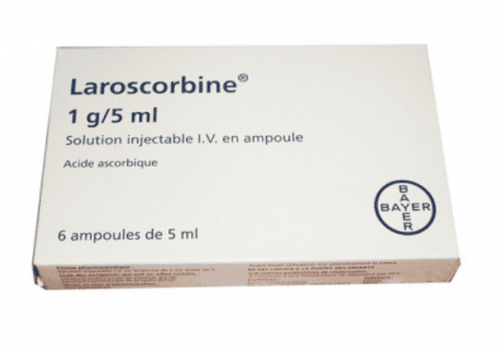Orange juice is a favorite beverage for many, packed with essential nutrients such as vitamin C and potassium. Additionally, commercially available orange juice products are often fortified with calcium and vitamin D. So, what are the health benefits of orange juice?
1. Nutritional Composition of Orange Juice
In fact, surveys show that orange juice is the most popular fruit juice worldwide, with approximately 1.6 billion tons produced annually. While you can purchase various types of orange juice at grocery stores, you can also make your own using a manual or electric juicer. Given its popularity, many people wonder if drinking orange juice daily is beneficial.
Orange juice is rich in nutrients, with vitamin C standing out as its most prominent component. However, if you choose to consume orange juice daily, consider the sugar content per serving. Opt for 100% pure fruit juice without added sugars to maximize its health benefits.
One cup of fresh orange juice contains 112 calories, 2 grams of protein, 0 grams of fat, 26 grams of carbohydrates, 0 grams of fiber, and 21 grams of sugar. Additionally, orange juice is an excellent source of essential nutrients such as vitamin C, vitamin A, calcium, iron, and folate.
Orange juice with pulp is a rich source of fiber. Studies have shown that fiber supports digestive health and may reduce the risk of conditions such as diabetes, cardiovascular diseases, and certain types of cancer.
Orange juice is a concentrated source of vitamin C, a water-soluble vitamin with dual functions as a powerful antioxidant and a key player in immune function. Additionally, vitamin C supports bone formation, wound healing, and oral health.
Folate in orange juice plays a vital role in DNA synthesis and supports fetal growth and development. Moreover, orange juice is an excellent source of potassium, which helps regulate blood pressure, prevent bone loss, and protect against heart disease and stroke.
2. Potential Health Benefits of Orange JuicePotential Health Benefits of Orange Juice
Orange juice is highly nutritious, but it’s important to consume it in moderation due to its high sugar content. Research has found that drinking orange juice in moderate amounts can offer several potential health benefits:
2.1. Rich in Antioxidants
Antioxidants in orange juice promote health by preventing oxidative damage caused by imbalances in the body.
Studies have shown that antioxidants are crucial for maintaining overall health. They may also help protect against chronic diseases such as heart disease, cancer, and diabetes. Orange juice is a rich source of antioxidants, including flavonoids, carotenoids, and ascorbic acid (vitamin C).
One study conducted over 8 weeks found that consuming 750 ml of orange juice daily significantly increased antioxidant levels. Similarly, another study showed that drinking 591 ml of orange juice daily for 90 days improved overall antioxidant capacity in adults with high cholesterol and triglycerides.

2.2. May Help Prevent Kidney Stones
Kidney stones are small mineral deposits that form in the kidneys, often causing symptoms such as severe pain, nausea, or blood in the urine.
Orange juice can increase the pH level of urine, making it more alkaline. Studies have shown that a higher, more alkaline urine pH can help prevent kidney stones. This finding was also observed in a small study, which demonstrated that orange juice was more effective than lemon juice in reducing certain risk factors for kidney stones.
One small study found that orange juice was more effective than lemon juice in reducing certain risk factors for kidney stones. Additionally, a large study involving 194,095 participants revealed that those who drank orange juice at least once daily had a 12% lower risk of developing kidney stones compared to those who drank it less than once a week.
2.3. Improves Heart Health
Cardiovascular disease is a serious global issue, contributing to more than 17 million deaths annually. Some research indicates that consuming orange juice may reduce certain risk factors for heart disease, such as high blood pressure and cholesterol levels, helping to maintain heart health.
In a study involving 129 participants, long-term consumption of orange juice was shown to reduce total cholesterol levels, including LDL cholesterol (bad cholesterol).
Moreover, a meta-analysis of 19 studies on the benefits of orange juice for cardiovascular health found that consuming fruit juice helped reduce diastolic blood pressure.
Additionally, orange juice has been shown to increase HDL cholesterol (good cholesterol) levels, which can further enhance heart health.
2.4. Orange Juice May Reduce Inflammation
Acute inflammation is a normal immune response designed to protect against illness and infection. However, chronic, prolonged inflammation can increase the risk of developing chronic diseases. Elevated markers of inflammation, such as C-reactive protein (CRP), interleukin-6 (IL-6), and tumor necrosis factor-α (TNF-α), have been associated with metabolic syndrome, cardiovascular disease, and certain cancers.
Some studies suggest that orange juice plays a role in reducing inflammation and its related complications. Orange juice has anti-inflammatory properties that may lower specific inflammatory markers linked to chronic diseases.
Additionally, a study involving 22 participants over 8 weeks found that drinking both fresh and commercially prepared orange juice reduced inflammatory markers such as CRP and IL-6, potentially supporting disease prevention.
2.5. Weight Management
Orange juice is high in sugar, particularly in versions with added sugar, making it a calorie-dense beverage. For individuals following a calorie-restricted diet for weight loss, consuming low-calorie, nutrient-dense foods and beverages is generally more effective than drinking calorie-rich options like orange juice.

3. Potential Drawbacks of Orange Juice
Although orange juice offers several health benefits, it is also high in calories and sugar. Furthermore, unlike whole fruits, orange juice lacks fiber and may contribute to weight gain.
In fact, studies indicate that excessive consumption of orange juice can lead to weight gain or difficulty controlling weight. Many commercially available orange juices contain added sugars, which can increase blood sugar levels.
Some research has found that regularly consuming sugary beverages, including fruit juices, may be associated with a higher risk of developing type 2 diabetes. Practicing portion control and choosing 100% freshly squeezed orange juice without added sugars can help maximize health benefits. Additionally, diluting orange juice with water can reduce calorie and sugar intake, helping prevent weight gain. or children, it is recommended to limit fruit juice intake to the following amounts: 1–3 years old: Up to 118 ml per day, 4–6 years old: Up to 177 ml per day, 7–18 years old: Up to 240 ml per day.
4. Healthier Alternatives
Opt for orange juice without added sugars and consider varieties with higher fiber content for additional health benefits. You can also choose orange juice fortified with calcium and vitamin D, which are not naturally found in regular orange juice.
Orange juice is a favorite beverage rich in antioxidants and essential nutrients such as vitamin C, folate, and potassium. Regular consumption is associated with several health benefits, including improved heart health, reduced inflammation, and a lower risk of kidney stones. However, due to its high calorie and sugar content, it is best consumed in moderation. Whenever possible, choose freshly squeezed or 100% pure orange juice.
If you are unsure whether you should drink orange juice, or if you have specific health conditions requiring detailed guidance, you can contact Vinmec International General Hospital for expert advice and care from a team of highly qualified doctors.
Reference source: webmd.com - healthline.com
To arrange an appointment, please call HOTLINE or make your reservation directly HERE. You may also download the MyVinmec app to schedule appointments faster and manage your reservations more conveniently.








